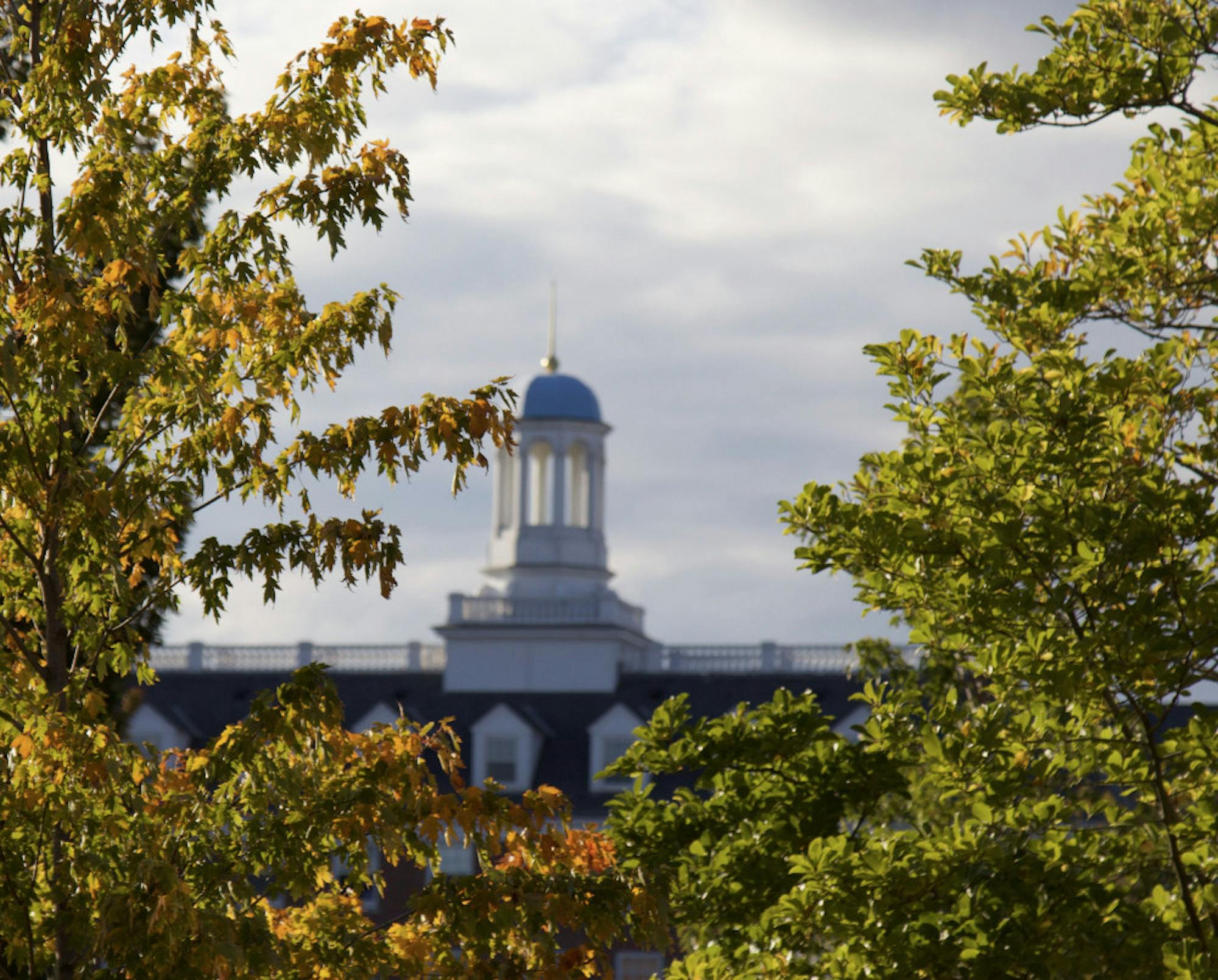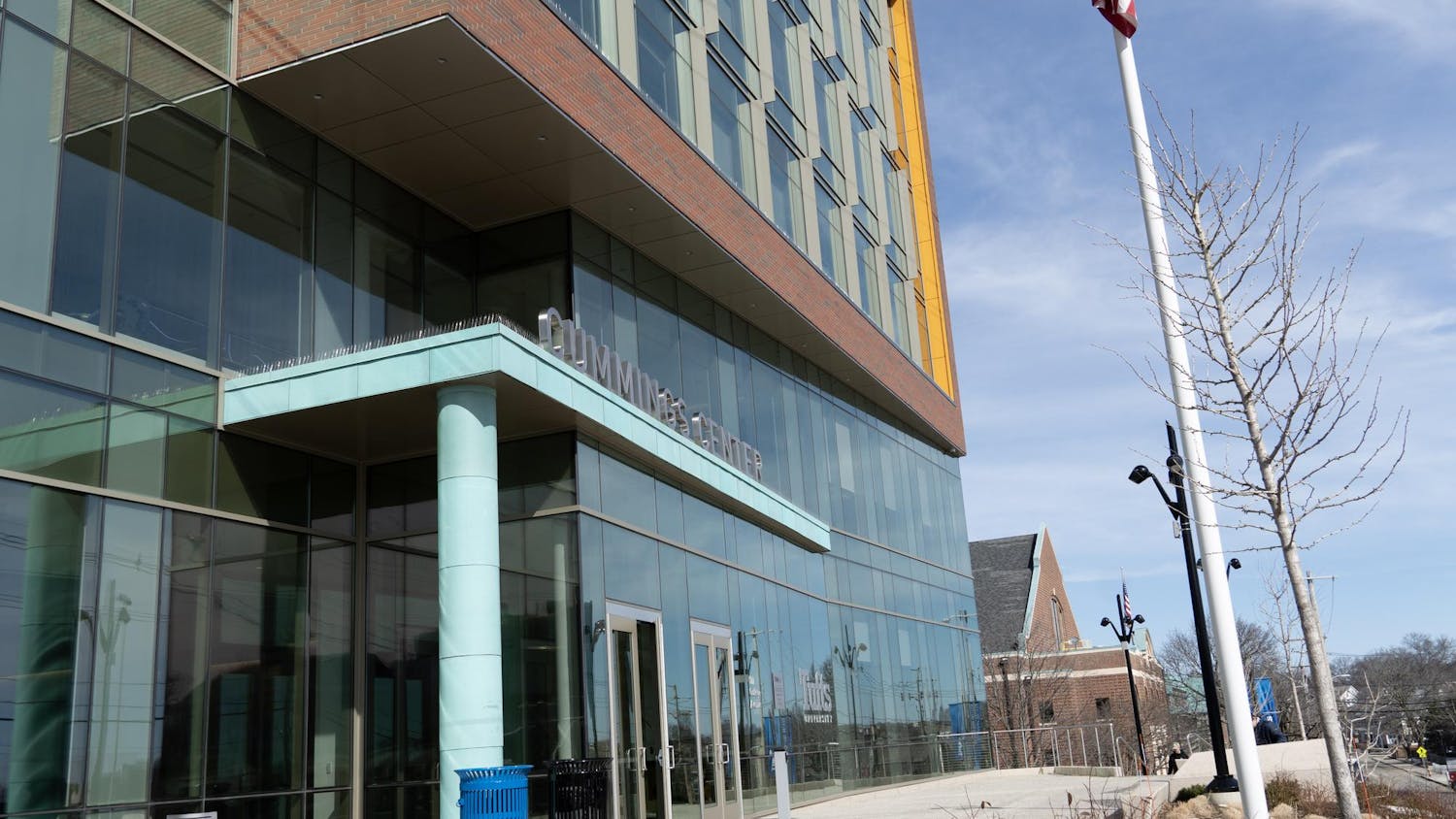As Thanksgiving break approaches, university health officials have continued to urge students to adhere to COVID-19 guidelines. They may consider additional measures such as new procedures for campus dining and reduction of the 10-person gathering size, if cases on campus continue to rise, according to Michael Jordan, university infection control health director.
As of Nov. 21, Tufts recorded 68 cases across its campuses in the previous seven days with a positivity rate of 0.30%, according to the Tufts COVID-19 dashboard. On the Medford/Somerville campus, there were 62 individuals in isolation and 251 in quarantine. The current statistics show a drastic increase in the spread of COVID-19 compared tothe low number of infections seen in September.
In response to the rise in cases, Tuftsimposed stricter guidelines for in-person students and recently suspended athletic practices for the rest of the calendar year, according to an email sent to the Tufts community on Nov. 19.
Marie Caggiano, medical director of Health Service, attributed students’ decreased adherence to COVID-19 guidelines to a false sense of security from negative test results.
“We are observing some reduction in student compliance with the health protocols,” Caggiano wrote in an email to the Daily. “Students have told us that routine test results were making them feel safe, and that as a result they were letting their guard down on mask wearing, physical distancing, and limiting close contacts.”
Caggiano emphasized that surveillance testing is designed to identify cases and prevent further transmission, but it does not protect an individual from infection.
Michelle Bowdler, executive director of health and wellness services, reiterated that students should still follow guidelines despite negative test results.
“There was recentlyan article in the LA Times indicating that many people are getting infected with COVID-19 after group members test negative … The data in this article confirm that assuming it is safe to gather because a group of people have all recently tested negative is a serious mistake that is contributing to significant spread around the country,” Bowdler wrote in an email to the Daily.
Relaxation of physical distancing is now permitted only between roommates and is no longer allowed between cohort members, even if masks are worn.
“You should maintain six or more feet from your apartment mates or suitemates and wear a mask,” Caggiano said. “With the exception of your roommate or the people with whom you share a bedroom, the less than 15-minute and no closer than six feet guidance applies.”
According to Camille Lizarríbar, dean of student affairs, the university will follow up on all noncompliance reports to enforce the new set of guidelines. Students who violate the health rules may face consequences.
“As a public health measure, a student who repeatedly misses tests will be placed on remote status and will not be allowed on campus, and they will also be subjected to further disciplinary action,” Lizarríbar wrote in an email to the Daily.
Jordan explained that as the number of cases rise in Massachusetts, Tufts may continue to see an increase in cases on campus in the next few weeks.
He said the university continues to monitor data, and any decision Tufts makes is dependent on a number of indicators, including the university’s capacity to safely quarantine close contacts and isolate students infected with COVID-19.
Despite the rise in cases, the university is not concerned about The Mods’ capacity to accommodate students requiring isolation or quarantine.
“We are not concerned about bed availability at this point, and we are keeping a close eye on our overall capacity to safely isolate and quarantine students,” Jordan said.
Jordan urged students not to return to campus if they choose to go back home for the Thanksgiving holiday.
“We are very concerned about the impact of the Thanksgiving holiday break if students disregard our guidance and instead travel to and gather with family and others and then return to campus,” Jordan said.






